UN shelved hunger report on Rohingyas
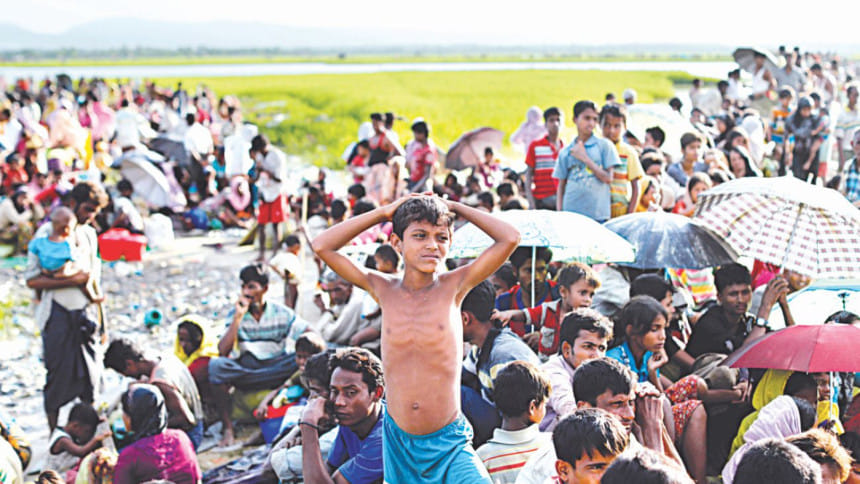
The UN World Food Programme withdrew a critical report revealing desperate hunger that the persecuted Rohingya population had been living with in Rakhine State of Myanmar, as its government demanded it be taken down.
The report on an assessment conducted in July by the WFP warned that more than 80,000 children under the age of five in majority-Muslim areas in Rakhine were "wasting"-- a potentially fatal condition of rapid weight loss, reported The Guardian newspaper yesterday.
The six-page document has been replaced by a statement saying Myanmar and the WFP were "collaborating on a revised version". That process would involve "representatives from various ministries, and will respond to the need for a common approach" that was in line with "WFP's future cooperation with the government".
The report should not be cited in any way, reads the statement.
The revelation adds to a series of recent criticisms that the UN did not push the Myanmar government hard enough to ensure the rights of 1.1 million Rohingyas in that country or sound the alarm at their spiralling oppression.
The issue exploded on August 25 when Rohingya insurgents attacked security forces who then responded with a severe counteroffensive that eventually sent nearly 600,000 Rohingyas fleeing into Bangladesh. Many of the refugees alleged mass killings and rapes.
The UN resident coordinator in Myanmar, Renata Lok Dessallien was recalled to the UN headquarters at the end of October amid allegations that she had suppressed another report and attempted to shut down public advocacy on sufferings of Rohingyas.
In response to The Guardian's query, the WFP said the report had been withdrawn from the website "following a request by the government to conduct a joint review".
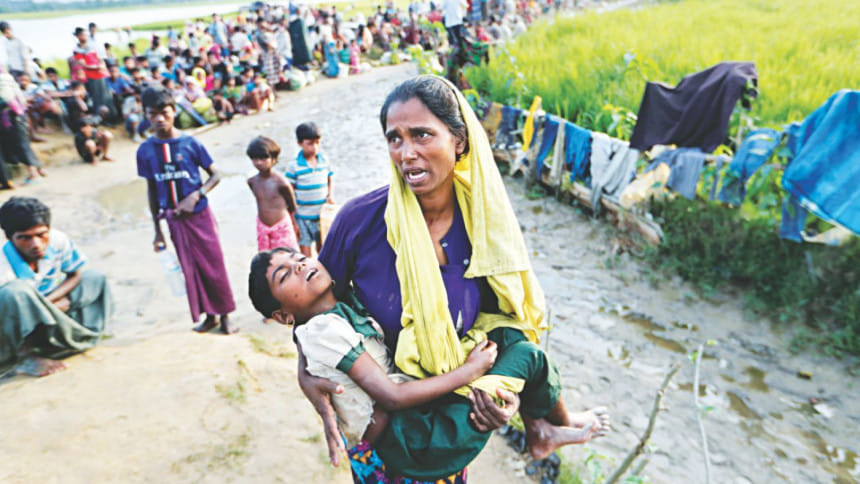
In an emailed statement, it said, "WFP stands by its original assessment, which was conducted jointly with local authorities in Rakhine State …. However WFP recognises that in a dynamic and evolving situation, it is important to coordinate closely with all partners, including the government."
The August violence, however, halted the joint review, it added.
A consultant who had worked with the UN, including the WFP, in Myanmar, said the agency's in-country team were already extremely nervous about the report getting too much attention.
The assessment indicated that controversial cuts of WFP food aid for internally displaced Rohingyas over the previous two years had left people in dire need, the consultant said.
"That was the discussion that was going on behind the scenes and at a senior level," the source said.
"They knew it was potentially damaging. It was all to do with the fact that internally, there was a belief that the decision made to stop feeding some of the [internally displaced people] was actually causing people serious harm, in terms of food security, hunger and even starvation."
The WFP country office had also been prioritising its relationship with the government above humanitarian needs in an attempt to attract millions in donor funding by showing it had government-approved access to work in other parts of the country, the source told The Guardian.
"It's a funny thing in the UN. It's all about how much money you can raise," the source said.
But the access came at the expense of Myanmar's most hated minority, the Rohingya, a toxic topic to raise with the government, leading to it being sidelined.
According to the findings of the report, one-third of all homes in Maungdaw were experiencing extreme food deprivation and called for further humanitarian assistance for more than 225,000 people.
And alarmingly, the assessment pointed to widespread accounts of security forces preventing Rohingyas from reaching markets and their crops.
"Restriction of movement was one of the main constraints for the population for accessing food," it said. "Residents still did not have full access to the forest, agricultural land and fishing grounds due to continuous military presence."
The Guardian has contacted the Myanmar government for comments.
The WFP did not respond directly to questions about whether food aid cuts had left vulnerable people in need or whether the agency had prioritised good relations with the government over the immediate humanitarian needs of the Rohingya.
"WFP's purpose in Myanmar is and always has been to address the food and nutrition needs of vulnerable people," it said.

 For all latest news, follow The Daily Star's Google News channel.
For all latest news, follow The Daily Star's Google News channel. 

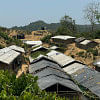


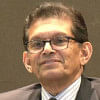
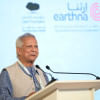


Comments